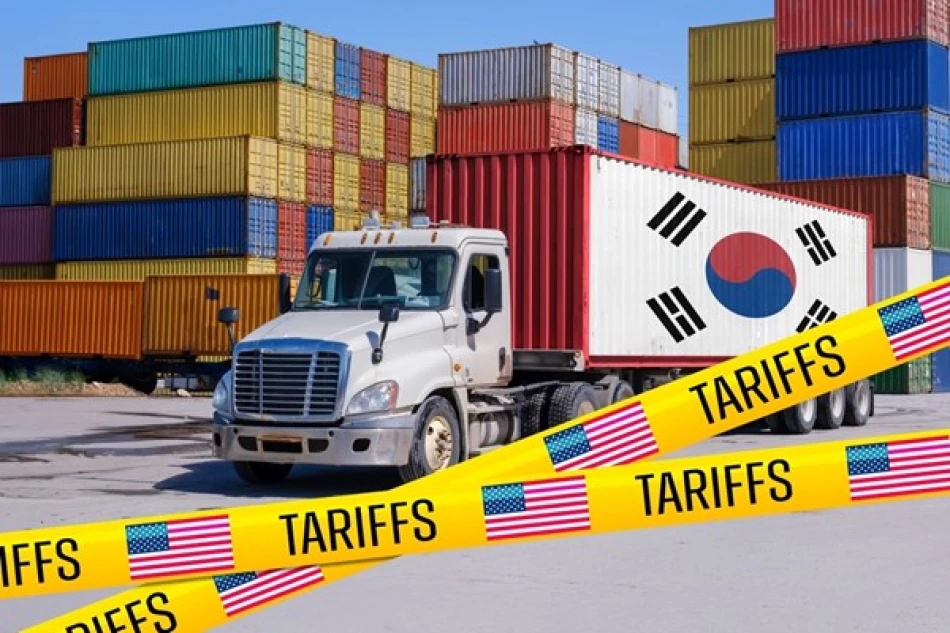
South Korea Intensifies Efforts to Avoid Impending U.S. Tariffs
South Korea Scrambles to Avert US Tariff Storm as Trade Tensions Escalate
South Korea is launching an urgent diplomatic offensive in Washington next week to prevent new American tariffs from taking effect on August 1st, as Seoul faces mounting pressure to protect its crucial steel and automotive exports. The high-stakes negotiations reveal how trade wars continue to reshape global supply chains, even as both countries seek to strengthen their strategic partnership against regional threats.
Emergency Response to Looming Trade Deadline
Following an emergency meeting in Seoul on Saturday, South Korea's presidential office announced an intensified diplomatic campaign featuring senior-level talks in Washington. The crisis session, led by Policy Office Director Kim Young-beum and National Security Advisor Wi Sung-lac, brought together finance, industry, and trade ministers to coordinate a unified response ahead of the critical deadline.
The urgency reflects South Korea's vulnerability to US trade policy shifts. With steel and automotive sectors forming the backbone of Korea's export economy, any additional tariffs could severely impact companies like Hyundai, Kia, and POSCO that have significant exposure to American markets.
The 25% Tariff Challenge
Current negotiations aim to reduce existing 25% reciprocal tariffs while preventing additional levies on Korean steel and automotive exports. These tariffs, remnants of the Trump administration's trade war strategy, have already forced Korean manufacturers to restructure their supply chains and pricing models.
The steel sector faces particular pressure, as US domestic producers continue lobbying for protection against what they view as unfair competition. Korean steelmakers, already grappling with overcapacity issues and environmental regulations at home, cannot afford to lose significant market share in their second-largest export destination.
Strategic Shipbuilding Cooperation Emerges
Interestingly, both sides have agreed to enhance cooperation in shipbuilding—a sector where Washington has shown keen interest. This development signals a potential trade-off where South Korea's advanced shipbuilding capabilities could serve US strategic interests, particularly as America seeks to rebuild its naval industrial base amid growing competition with China.
Korean shipbuilders like Samsung Heavy Industries and Daewoo Shipbuilding have cutting-edge technology in LNG carriers and military vessels that could prove valuable to US energy security and defense objectives. This cooperation framework might provide Seoul with leverage in broader trade negotiations.
Implications for US-Korea Economic Relations
Next week's ministerial meetings between finance and foreign affairs counterparts represent more than routine trade discussions. They occur against a backdrop of shifting geopolitical priorities, where economic partnerships increasingly serve strategic purposes beyond pure commercial interests.
For investors and multinational corporations, the outcome will signal whether the US-Korea trade relationship can evolve beyond the adversarial patterns established during previous administrations. Success could provide a template for resolving similar disputes with other allies, while failure might indicate that protectionist pressures remain dominant in US trade policy.
The August 1st deadline creates genuine urgency, as Korean exporters need clarity to plan production schedules and pricing strategies for the crucial third quarter. Any last-minute deal will likely require compromises from both sides, potentially reshaping how these strategic allies balance economic competition with security cooperation.
Most Viewed News

 Layla Al Mansoori
Layla Al Mansoori






